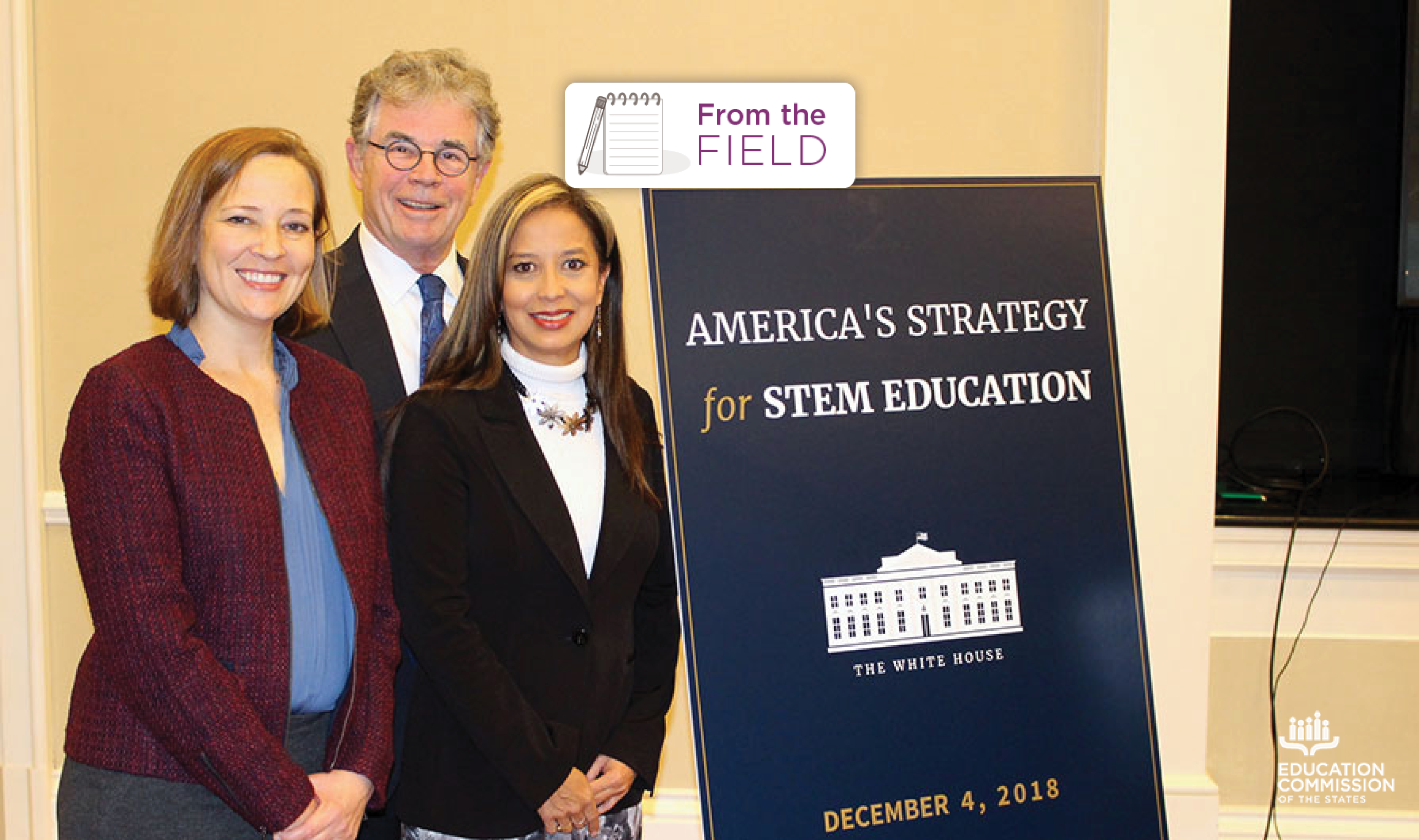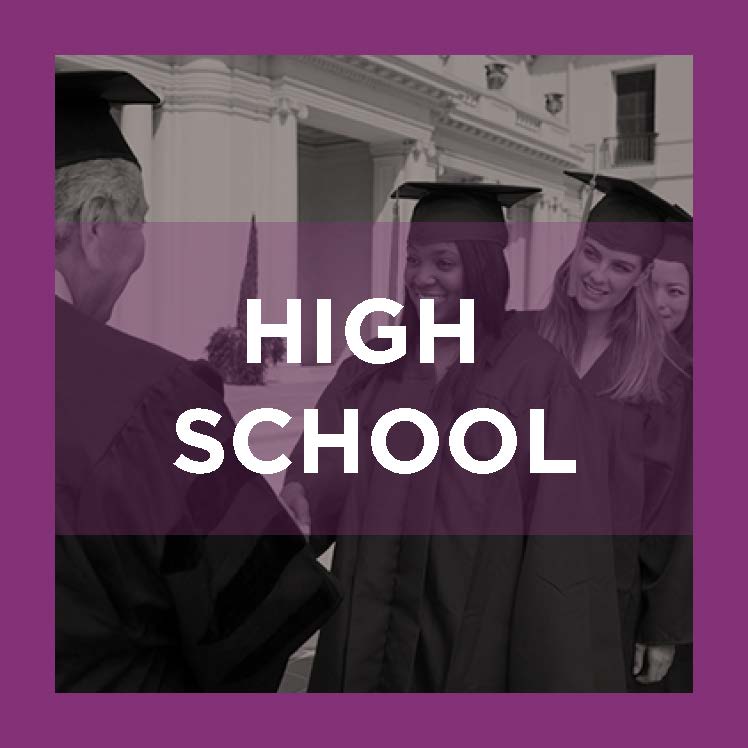To assist states in expanding equitable access to high-quality science, technology, engineering and math experiences in pre-K through grade 3 (P-3), Education Commission of the States hosted a December 2020 virtual Early STEM Policy Academy. Cross-sector teams from five states — California, Colorado, Indiana, Michigan and Oregon — with emerging early STEM efforts gathered virtually to learn from leading states and develop early STEM plans.
Speakers from Idaho, Iowa and Washington shared their experiences on supporting meaningful P-3 STEM teacher training, professional development and family involvement. Jeff Weld, executive director of the Iowa Governor’s STEM Advisory Council, presented data indicating students participating in STEM Scale-Up programs were more likely than students statewide to express interest in STEM subjects, in pursuing a STEM career and staying in Iowa after graduation.
Beth Van Meeteren of the University of Northern Iowa Regents’ Center for Early Developmental Education reported that P-3 teachers participating in professional learning programs often express excitement at regaining their own sense of curiosity about the natural world and remember why they went into teaching in the first place.
Angela Hemingway, former executive director of the Idaho STEM Action Center noted that because stakeholders statewide defined early childhood “technology,” “engineering” and “math” differently, creating a common language was essential to moving early STEM efforts forward. Hemingway also spoke to misconceptions that hindered the early stages of the work. Hemingway then described how these misconceptions, such as “Early childhood STEM is not developmentally appropriate” and “Early childhood STEM does not promote social emotional development,” were addressed.
Soleil Boyd, senior program officer at Washington STEM, shared numerous findings from the state’s 2019 early math professional development analysis, the recommendations that emerged from the analysis, and the efforts of the cross-sector early math coalition to support state and local early math efforts.
Across states, teams agreed on the importance of ensuring that equity, access and inclusion are front and center in P-3 STEM conversations from the outset, particularly as states begin to address learning loss because of COVID-19. State teams asked: Which stakeholders should be included in those equity conversations, and how? How can states best integrate equity and diversity into short- and long-term goals?
States also expressed an urgent need to address an array of early STEM teaching issues, such as:
-
- How states can best recruit and retain more P-3 teachers prepared to integrate STEM content.
- How states can retool teacher preparation programs to facilitate ongoing early STEM instruction and most wisely invest in early STEM professional development.
- How a collective impact approach can be leveraged, including through regional early childhood councils.
A new Education Commission of the States resource is intended to support state leaders on these very issues. This newly released Policy Brief shows that early STEM policy efforts will fall short of their intended outcomes if principals do not see the value in (or lack the skills to provide leadership for) STEM integration in their school. The brief includes best practices from states that have launched early STEM leadership training programs.
P-3 children thrive in learning environments that apply developmentally-appropriate practice – including play-based; inquiry-based; and hands-on, interactive experiences. Yet while such developmentally-appropriate practices are a natural component of high-quality early STEM experiences, relatively few states have adopted approaches to ensure all early learners have equitable access to such experiences. As the work in states moves forward, Education Commission of the States will keep you posted on replicable innovations and best practices. Stay tuned!








